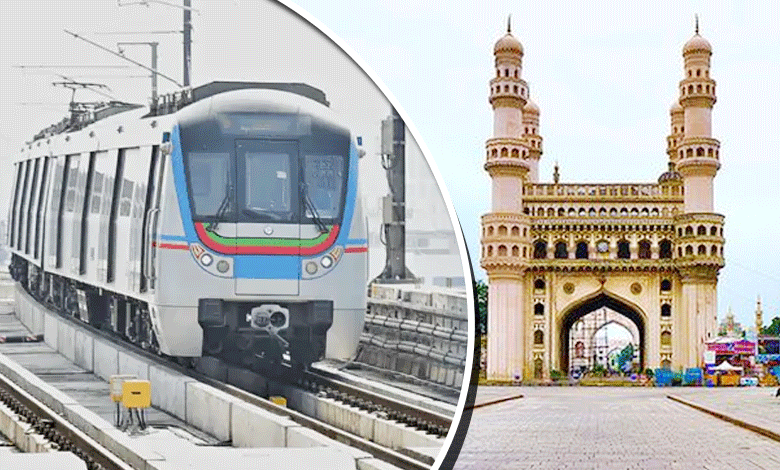Hyderabad Metro Rail Project: Religious Structures Will Not Be Disturbed
Currently, Hyderabad Metro Rail operates with three-coach trains. During peak hours, the Metro witnesses heavy crowds, which is a common phenomenon worldwide. Plans are in place to upgrade the trains from three coaches to six coaches, though running eight-coach trains is not permitted at this stage.

Hyderabad: State Minister for Industries and IT, D. Sridhar Babu, assured that no religious structures will be removed during the implementation of the Metro Rail Project in the Old City. Compensation will be provided to the affected individuals under the Land Acquisition Act of 2013.
He stated that ₹24,269 crore will be spent on the construction of the second phase of the Metro Rail, extending from MGBS to Chandrayangutta in the Old City. Of this, the state government will bear 30% of the cost, the central government will contribute 18%, and 48% will be financed through loans.
Also Read: Ration Card Distribution Drive for Eligible Families Begins Soon
Speaking during the Question Hour in the Council, Sridhar Babu clarified that construction work for the Metro Rail will commence after obtaining the necessary permits. He also dismissed rumors about an increase in Metro Rail fares, confirming that there will be no fare hikes.
Extended Services During Festivals and Events
The Minister highlighted that Metro Rail services are extended during festivals, cricket matches, and exhibitions to cater to public needs. This year as well, Metro services will be extended for visitors attending the city’s annual exhibition.
Addressing Crowds During Peak Hours
Currently, Hyderabad Metro Rail operates with three-coach trains. During peak hours, the Metro witnesses heavy crowds, which is a common phenomenon worldwide. Plans are in place to upgrade the trains from three coaches to six coaches, though running eight-coach trains is not permitted at this stage.
Managed Under PPP Model
Sridhar Babu emphasized that the Metro Rail project is managed under a Public-Private Partnership (PPP) model, with L&T responsible for its operations and maintenance. Instructions have also been issued to increase the number of trips during peak hours to address commuter demands.
